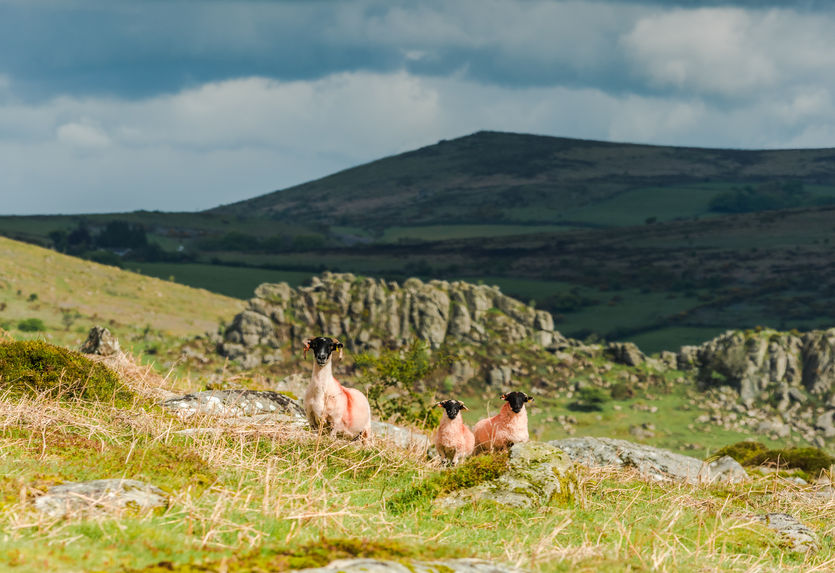
A Defra-funded trial on 26 Exmoor farms has raised concerns over delivering public goods in a national park while ensuring a viable farm business.
Exmoor National Park Authority was commissioned last year to test principles for mapping the delivery of public goods on farms to help identify key areas for improvement.
It is hoped the findings will help find ways to better support farmers in protected landscapes ahead of the transition to the Environmental Land Management (ELM) scheme.
The UK's new system, replacing the EU's Common Agriculture Policy (CAP), will be introduced to incentivise sustainable farming practices while boosting the environment.
A key finding from the new report shows that there is a potential threat to important designated habitats in upland areas like Exmoor.
It warns that any fall in farm payments could cause a decline in the amount of land under agri-environment schemes.
Sites such as heather moorland, wetlands and wood pasture were identified as being vulnerable as the grazing regimes that sustain them often only marginally benefit the farm.
Figures reported by National Parks England already show downward trends, with a 17% drop in the amount of farmland on Exmoor under such schemes since 2015.
The report highlights barriers to farms on being able to access ELM funding, as there would be a high demand for skilled advisors to help draw up proposals.
A survey by Exmoor Hill Farming Network (EHFN) shows that 88% of respondents state they expect to need advisers to help complete ELM Land Management Plans, but only around half knew where to get this advice.
The report goes on to say that more research is needed to be able to quantify aspects such as cultural heritage, historic features, wildlife, public access and engagement.
The Exmoor National Park Authority worked with Robert Deane, of consultancy firm Rural Focus, as part of the report.
He said he hoped the government's new ELM scheme would be 'fairer and simpler' for farmers.
"The outgoing basic payments scheme simply isn’t set up to account for this level of detail and in some ways hasn’t properly incentivised farmers wanting to ‘do the right thing’ for nature.
"This is particularly true in upland areas like Exmoor, where a volatile market and tighter margins leave very little room for manoeuvre," he said.
Dave Knight, chair of the EHFN, added: “About 56% of the national park is farmland and we hope this report goes some way towards demonstrating to the government what we have to offer, and how best our industry can be supported to deliver multiple benefits for people and nature.”
The Exmoor trial was one of 50 Defra 'tests and trials' to help inform the development of the future ELM scheme, due to be rolled out in 2024.
The scheme will see farmers paid for work that enhances the environment, such as tree or hedge planting, river management to mitigate flooding, or creating habitats.
